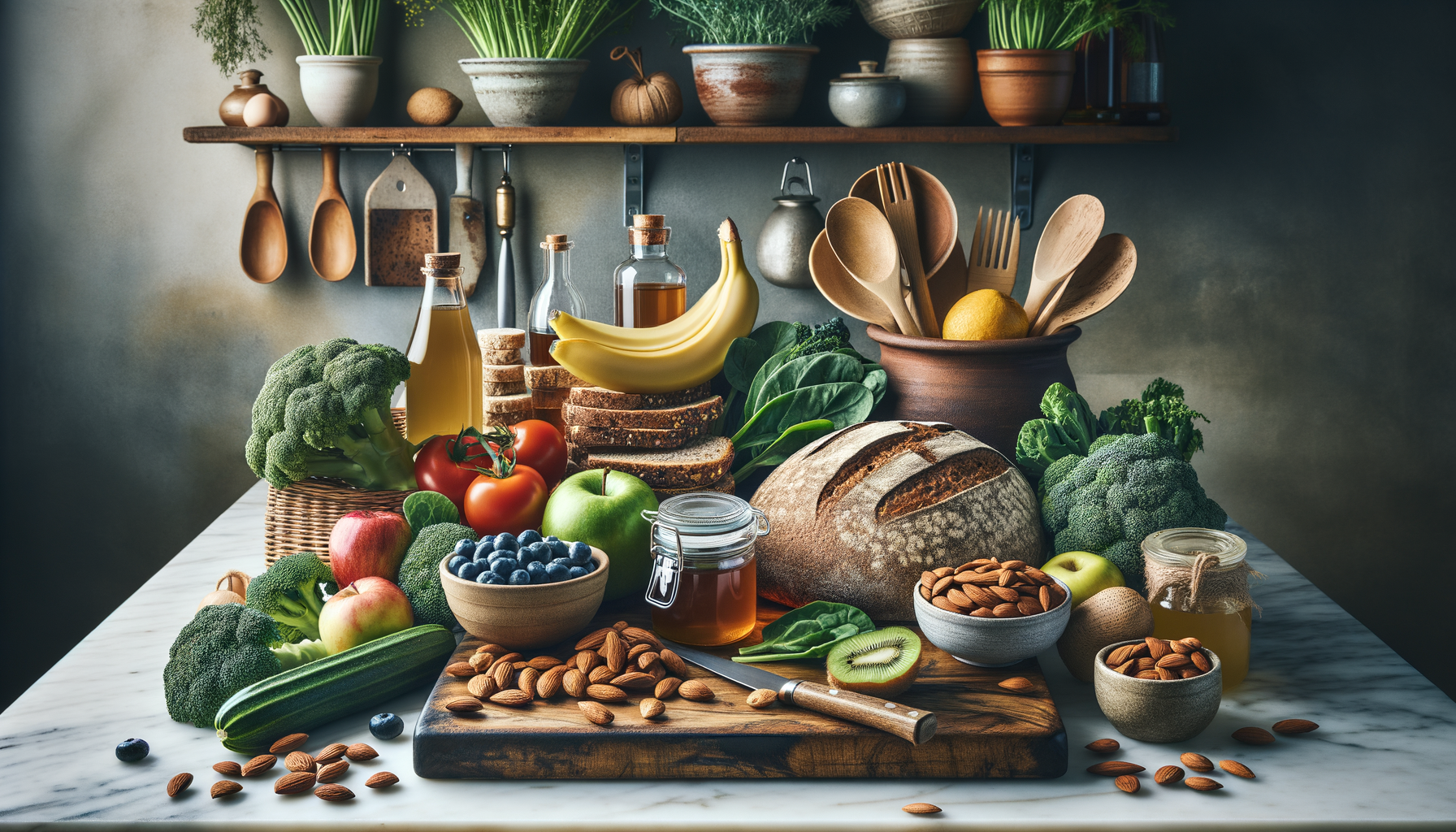
Why Gut Healthy Foods Deserve a Place in Every Kitchen
The Role of Gut Health in Overall Wellbeing
Gut health is a cornerstone of overall wellbeing, influencing not just digestion but also immunity, mood, and even skin health. The gut is home to trillions of microbes that play crucial roles in breaking down food, synthesizing essential nutrients, and keeping harmful bacteria at bay. When your gut is functioning optimally, you might notice clearer skin, improved sleep, reduced bloating, and more stable energy levels throughout the day.
Supporting your gut health involves feeding these beneficial microbes with the right nutrients. This is where gut healthy foods come into play. By incorporating a variety of these foods into your diet, you can foster a more diverse and resilient microbiome. This, in turn, can enhance your body’s ability to fight off infections, regulate mood, and maintain a healthy weight.
It’s important to understand that gut health is not a one-size-fits-all concept. Different foods affect individuals differently, and what works for one person might not work for another. However, there are certain foods known for their gut-friendly properties that can benefit most people when included as part of a balanced diet.
Key Components of Gut Healthy Foods
When it comes to gut healthy foods, two key components stand out: fibre and live cultures. Fibre, found in abundance in foods like oats, beans, apples, and leafy greens, acts like a broom for your digestive tract, sweeping it clean while providing nourishment for the good bacteria. This type of dietary fibre can help maintain regular bowel movements and prevent constipation.
Live cultures, or probiotics, are found in fermented foods like yoghurt, kimchi, sauerkraut, and kefir. These foods are packed with live bacteria that can replenish and diversify your gut microbiome. Probiotics can aid in digestion, enhance nutrient absorption, and even boost your immune system.
In addition to fibre and probiotics, prebiotics are another important component of gut healthy foods. Prebiotics are non-digestible fibres that feed the beneficial bacteria in your gut. Foods like garlic, onions, bananas, and asparagus are excellent sources of prebiotics.
- Fibre: oats, beans, apples, leafy greens
- Probiotics: yoghurt, kimchi, sauerkraut, kefir
- Prebiotics: garlic, onions, bananas, asparagus
Everyday Foods That Support Gut Health
Incorporating gut healthy foods into your daily diet doesn’t require exotic or expensive ingredients. Many everyday foods can significantly contribute to a healthy gut. For instance, bananas are not only a convenient snack but also a great source of prebiotics. Dark chocolate, when consumed in moderation, can also support gut health due to its polyphenol content, which promotes the growth of beneficial bacteria.
Whole grains like brown rice and quinoa provide a good amount of fibre, while nuts and seeds offer both fibre and healthy fats. Leafy greens such as spinach and kale are nutrient-dense and support digestive health. Additionally, incorporating legumes like lentils and chickpeas into your meals can boost fibre intake and promote a healthy microbiome.
It’s also worth noting that hydration plays a crucial role in maintaining gut health. Drinking enough water helps keep the gut lining hydrated and supports the digestive process. Herbal teas, such as ginger or peppermint tea, can also aid digestion and soothe the gut.
- Bananas: prebiotics
- Dark chocolate: polyphenols
- Whole grains: fibre
- Leafy greens: nutrients
- Legumes: fibre
Simple Ways to Incorporate Gut Healthy Foods
Improving your gut health can be as simple as making small, consistent changes to your diet. Start your day with a breakfast that includes plain yoghurt topped with berries and chia seeds. This combination provides a mix of probiotics, fibre, and antioxidants, setting a positive tone for the day.
When it comes to lunch and dinner, consider swapping out refined grains for wholegrain or seeded options. Incorporate beans or lentils into your meals a few times a week to increase fibre intake. Adding a spoonful of sauerkraut or kimchi to your dishes can also introduce beneficial probiotics.
Snacking smartly can further support gut health. A banana with almond butter, a handful of nuts, or a piece of dark chocolate can satisfy cravings while nourishing your gut. Remember to stay hydrated, as water is essential for maintaining a healthy gut lining.
The Long-Term Benefits of a Gut-Healthy Diet
Adopting a diet rich in gut healthy foods offers numerous long-term benefits. As your gut health improves, you may notice increased energy levels, better digestion, and a stronger immune system. Over time, these changes can contribute to a reduced risk of chronic diseases, including obesity, diabetes, and heart disease.
Moreover, a healthy gut is closely linked to mental health. The gut-brain axis, a communication network between the gut and the brain, plays a role in regulating mood and cognitive function. By supporting your gut health, you may experience improvements in mood stability and mental clarity.
Ultimately, incorporating gut healthy foods into your diet is about making sustainable lifestyle changes. These small steps can lead to significant improvements in overall health and wellbeing, highlighting the importance of gut health in achieving a balanced and fulfilling life.

